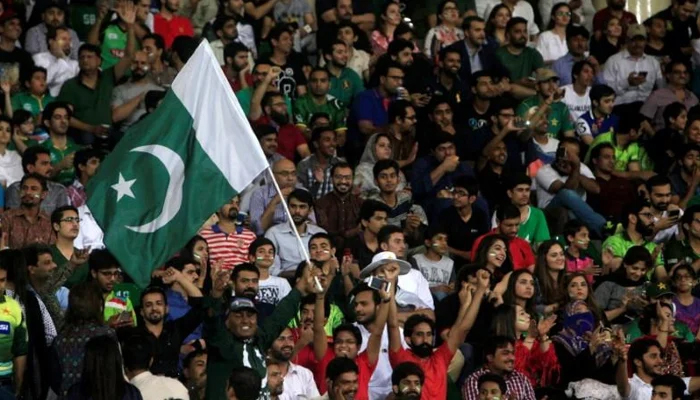M WAQAR..... "A man's ethical behavior should be based effectually on sympathy, education, and social ties; no religious basis is necessary.Man would indeed be in a poor way if he had to be restrained by fear of punishment and hope of reward after death." --Albert Einstein !!! NEWS,ARTICLES,EDITORIALS,MUSIC... Ze chi pe mayeen yum da agha pukhtunistan de.....(Liberal,Progressive,Secular World.)''Secularism is not against religion; it is the message of humanity.'' تل ده وی پثتونستآن
Saturday, August 5, 2023
Population Growth and Pakistan's Demographic Challenge: Navigating the Societal Imperatives
By M Waqar
Pakistan, a nation grappling with multifaceted challenges, confronts a critical concern that demands meticulous scrutiny and strategic resolution: population growth. This essay explores the intricate interplay between population growth and Pakistan's socio-cultural landscape, emphasizing the significance of comprehensive sex education and the cultivation of critical thinking as indispensable cornerstones for the country's progress.
Comprehensive Sex Education: A Broader Horizon:
Sex education, often misconstrued as solely pertaining to intimate relationships, transcends its narrow connotation within the Pakistani societal discourse. The broader purview encompasses pivotal aspects like disease prevention and effective birth control strategies. However, regrettably, this nuanced understanding remains elusive in the prevailing discussions. A recalibration of this discourse is essential. By channeling attention towards fostering healthy relationships and empowering informed decision-making to avert health risks, sex education becomes an instrumental catalyst for equipping individuals with the knowledge imperative for healthier lives.
Confronting Misconceptions and Cultivating Responsibility:
Within the tapestry of Pakistani society, a distinctive concern manifests: certain segments, particularly men ensnared by sexual frustration, display a hesitance towards contemplating solutions such as vasectomy. This surgical measure presents a pragmatic avenue to curtail the escalating menace of unbridled population expansion. However, entrenched societal norms and perceptions act as deterrents, underscoring the urgency for broader awareness campaigns and destigmatization efforts. Facilitating candid dialogues that dismantle misapprehensions is essential to facilitate a well-informed populace capable of embracing responsible family planning.
Elite Influence and Educational Paradigms:
An introspective lens also exposes the role of Pakistani elites and institutional dynamics. Delegating educational oversight to external entities, exemplified by Saudi Arabia's imprint through a plethora of madrassas, reverberates in the contours of the nation's intellectual evolution. Striking a harmonious equilibrium between religious instruction and a holistic, evidence-driven educational framework emerges as a critical mandate. This balance is pivotal in nurturing the cognitive acumen of Pakistan's burgeoning youth and cultivating the seeds of critical thinking in their intellectual soil.
Unweaving the Fabric of Unexamined Beliefs:
A noteworthy paradox emerges from the fusion of religion with daily life, where spirituality, while offering moral guidance, risks impeding the nation's advancement. A recalibration of religious practices is imperative, one that amalgamates modern knowledge and scientific progress. This recalibration fosters a nuanced, discerning approach to spirituality, pivotal for engendering a society adaptable and resilient in the face of a swiftly evolving world.
The challenges posed by limited sex education and the deficit in critical thinking emerge as pivotal crossroads in Pakistan's voyage towards societal development. The recalibration of sex education to encompass health protection and prudent family planning, coupled with a candid reexamination of prevailing norms regarding measures like vasectomy, are integral steps towards steering the nation onto a trajectory of progress. Moreover, a holistic educational approach, bolstered by critical thinking cultivation and a judicious fusion of religious tenets with modernity, promises to be the lodestar guiding Pakistan toward a future marked by enlightenment and advancement.
Subscribe to:
Comments (Atom)
